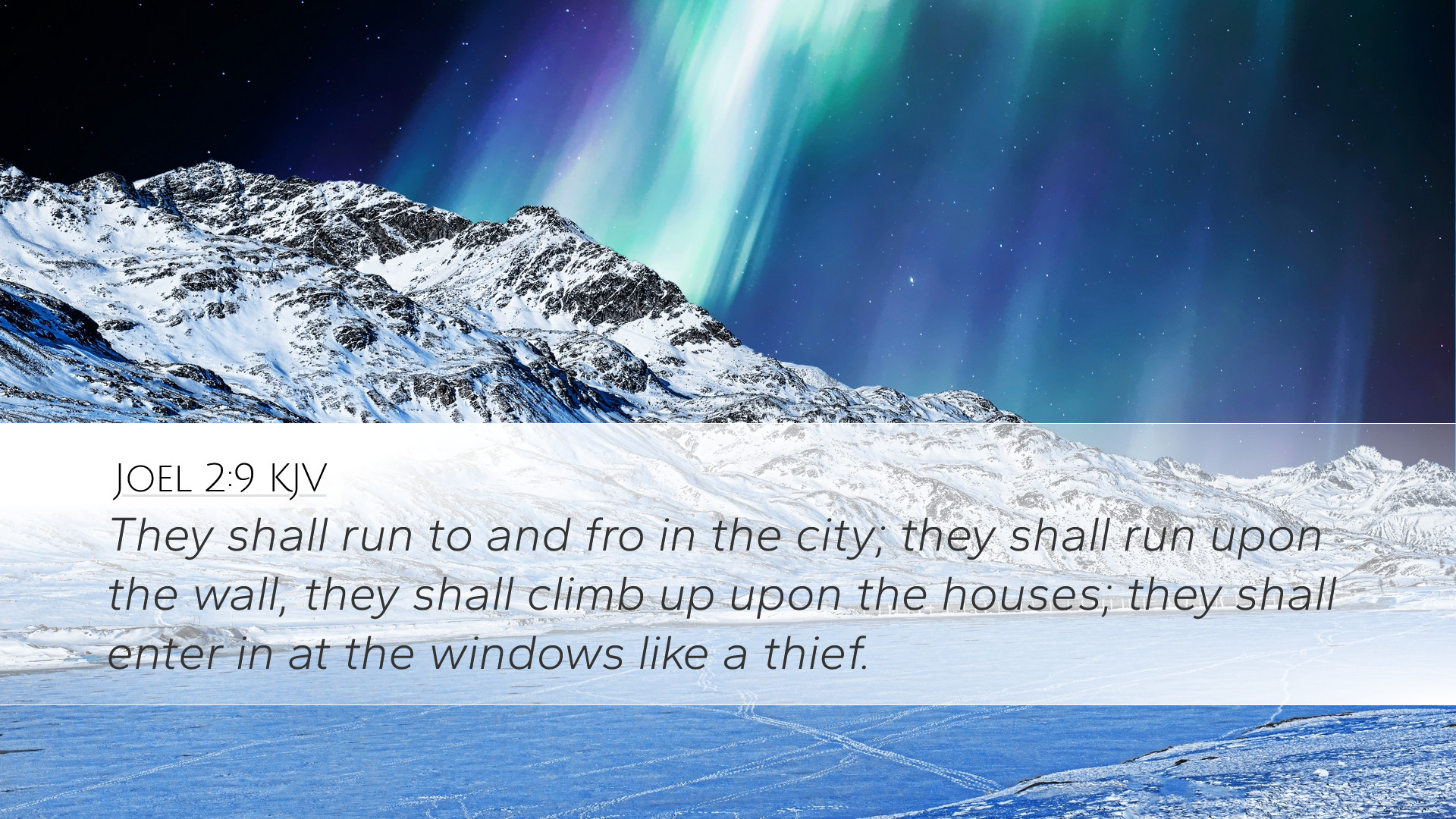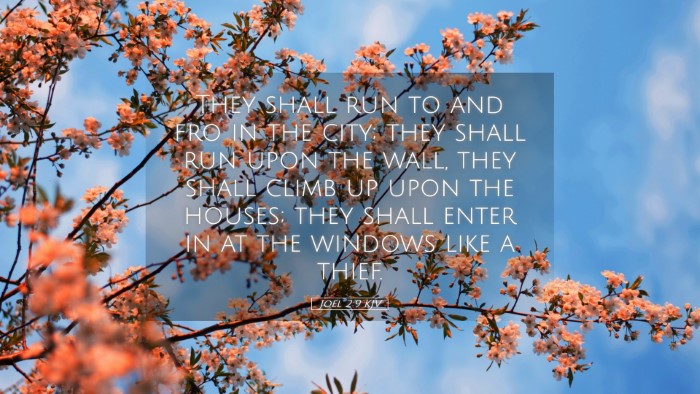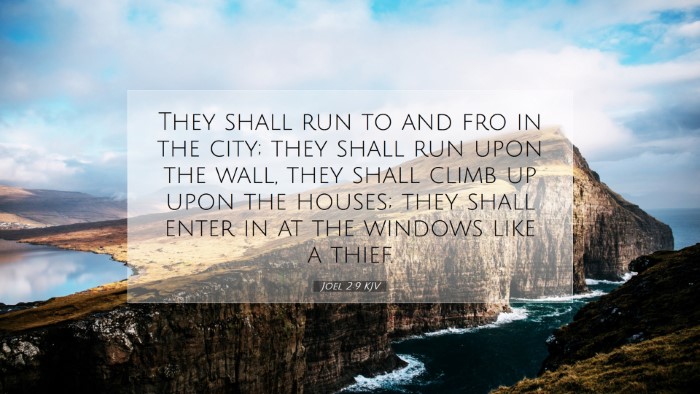Commentary on Joel 2:9
Joel 2:9 states, "They shall run to and fro in the city; they shall run upon the wall; they shall climb up upon the houses; they shall enter in at the windows like a thief." This verse elucidates the theme of the invading locusts, described as a mighty army, which serves not just as a literal interpretation but also carries deep theological implications regarding judgment, repentance, and restoration.
Contextual Overview
The Book of Joel presents a series of dire warnings regarding the impending judgment from the Lord. Scholars suggest it was written against the backdrop of a monumental locust plague, a metaphor for the impending military invasion that would devastate the land. Joel's prophetic words are a call to the people to reflect on their ways and return to God.
Exegesis of Joel 2:9
This verse illustrates the relentless nature of the locust invasion, depicting an ordered and disciplined approach to their destruction.
Commentary Insights
Matthew Henry highlights that the locusts are not merely creatures of nature but instruments of divine judgment. They are depicted as an organized force that will invade and ravage the city without remorse, resembling an invading army. This imagery serves to warn the people of the consequences of their unfaithfulness and sin.
Albert Barnes emphasizes the urgency of the situation, noting that the locusts 'run to and fro in the city', an expression that illustrates chaos and a complete takeover. He points out that this description alludes to the swift and inevitable nature of God's judgment. The imagery serves as a metaphor for the spiritual state of the people at the time, as they fail to heed the warnings of repentance.
Adam Clarke adds a historical perspective, linking the prophecy to the people’s moral and spiritual decline. He suggests that the chaotic invasion parallels the moral decay of the society, as they experience spiritual 'thieves' robbing them of their covenant with God. This highlights the need for vigilance and watchfulness in the spiritual realm, underscoring the belief that complacency leads to disaster.
Theological Implications
Joel 2:9 serves not only as a lament over Israel's sins but also as a promise of potential restoration following genuine repentance. Following the narrative force of the locusts, a call to repentance is issued, which can be viewed as a pivotal turn in the book.
- Divine Judgment: The relentless advance of the locusts signifies God's displeasure with Israel's disobedience.
- Call to Repentance: This verse acts as a catalyst urging the people to recognize their need for repentance and turn back to God.
- Hope of Restoration: The subsequent chapters provide a basis for hope, accentuating that even amidst judgment, God seeks to restore His people.
Practical Application
The vivid imagery of Joel 2:9 serves as a reminder for contemporary readers of both the seriousness of sin and the grace found in repentance. This text can be a powerful tool for pastors and theologians as they address themes of accountability and the necessity of turning back to God in times of societal and personal crisis.
This verse also presents a sober reflection on the swift and overwhelming nature of divine judgment, providing a sense of urgency for believers to remain vigilant in their spiritual walk.
Conclusion
In summary, Joel 2:9 presents a profound call to awareness for both ancient Israel and today's readers. Its imagery of chaos and invasion serves as a potent reminder of the nature of sin, while simultaneously inviting believers to pursue genuine repentance and anticipate the grace of restoration from God. As we reflect on this verse, let it challenge us to examine our spiritual lives, prompting an earnest return to the Lord and an acknowledgment of His overarching sovereignty over all creation.


